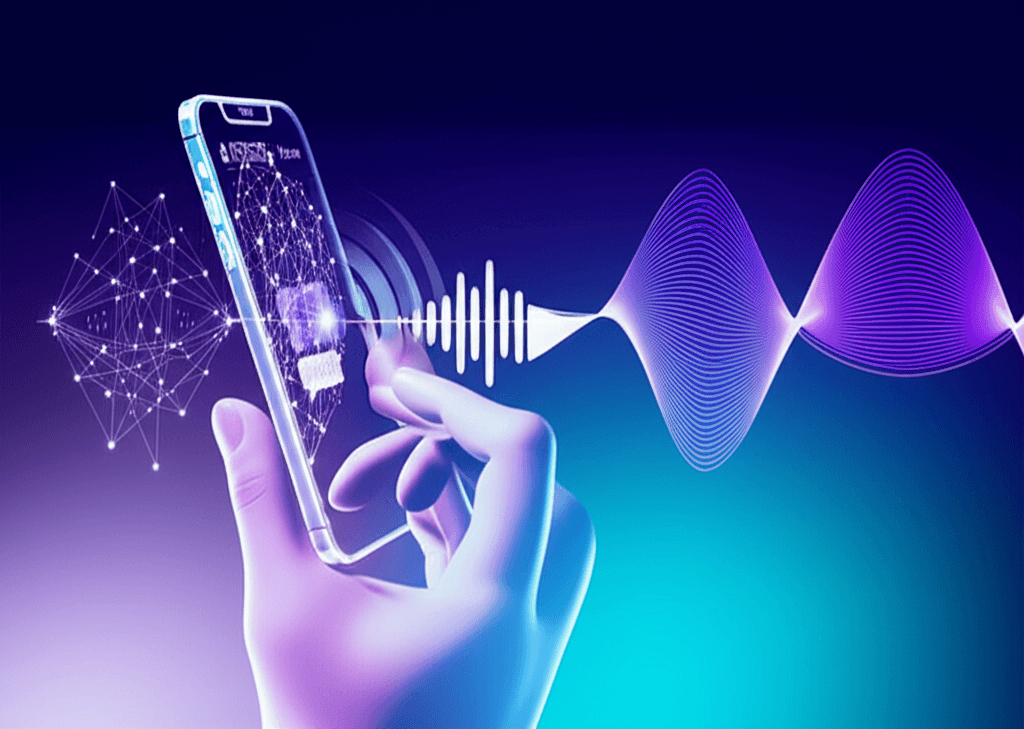Anthropic's Claude Adds Voice Mode, ElevenLabs Powers Spoken Conversations
Anthropic's Claude speaks, powered by ElevenLabs, revealing the AI industry's accelerating move towards strategic "buy vs. build" collaborations.
May 31, 2025

Anthropic is introducing a voice mode to its Claude mobile applications, enabling users to engage in spoken conversations with its artificial intelligence for the first time. Initially, this feature will only be available in English. Rather than developing its own speech technology in-house, Anthropic has chosen to leverage the capabilities of ElevenLabs, a company specializing in AI voice synthesis. This decision has several implications for both Anthropic and the broader AI industry, highlighting a growing trend of collaboration and specialization within the rapidly evolving AI landscape.
The new voice mode for Claude, currently in beta and rolling out over several weeks, allows for full spoken conversations on both iOS and Android devices.[1][2] Users can speak to Claude and receive spoken responses, with key points displayed on-screen as Claude speaks.[2] The feature aims to make interacting with Claude easier, particularly when users' hands are occupied.[2] It is powered by Anthropic's Claude Sonnet 4 model.[1][3][4] Users can choose from five distinct voice options to personalize their experience and can seamlessly switch between voice and text input within the same conversation.[1][2][3] While the core voice functionality will be available to all users, including those on the free plan, paid subscribers will have access to deeper integrations, such as connecting Claude to their Gmail, Google Calendar, and, for enterprise users, Google Docs.[1][5][6] Free users can expect to have approximately 20-30 voice messages per day, while paid plans offer significantly higher usage limits.[1][2] This move aligns Claude with competitors like OpenAI's ChatGPT and Google's Gemini, which already offer voice interaction capabilities.[1][5][7]
Anthropic's choice to partner with ElevenLabs for Claude's text-to-speech (TTS) functionality is a significant strategic decision.[8][9] ElevenLabs is recognized for its advanced deep learning models that generate realistic and natural-sounding voices, capable of capturing nuances in tone, emotion, and pacing.[8][10][11][12] Their technology is already utilized in various applications, including audiobook production, podcast creation, and video dubbing.[10][11] By integrating ElevenLabs' technology, Anthropic can provide a high-quality, human-like voice experience for Claude users without investing the considerable resources and time required to develop a comparable in-house solution.[8] This "buy versus build" decision allows Anthropic to focus on its core competency: developing large language models and their underlying reasoning capabilities. The collaboration was hinted at in earlier reports stating Anthropic was in discussions with Amazon, a major investor, and ElevenLabs to power future voice features.[9][1][13] Confirmation of the ElevenLabs partnership appeared in Anthropic's "Trust Center" documentation, noting ElevenLabs as a subprocessor for text-to-speech functionality in Claude for Work mobile apps as of May 29th, 2025.[9] It's worth noting that ElevenLabs itself has integrated Anthropic's Claude 3.7 Sonnet model into its own conversational AI platform, showcasing a reciprocal technological relationship.[14]
The decision to use a third-party provider for a critical feature like voice synthesis reflects a broader trend in the AI industry towards specialization and strategic partnerships. Developing cutting-edge AI models is incredibly complex and resource-intensive. Companies are increasingly choosing to focus on specific niches while leveraging external expertise for other components. This approach can accelerate product development, reduce costs, and allow companies to offer more robust and feature-rich products than they might be able to produce alone. However, relying on third-party technology also introduces considerations around data privacy, security, and potential vendor lock-in.[15][16][17] For instance, voice data is sensitive, and its collection, storage, and processing by third-party systems raise privacy concerns that companies must address transparently.[15][18] Organizations utilizing third-party AI tools face potential risks if those tools fail or are misused, which can lead to reputational damage and legal liabilities.[16] Research indicates that over half of AI failures stem from third-party tools, emphasizing the need for rigorous evaluation and responsible AI programs.[16] The legal landscape surrounding AI-generated content and the distinction between first-party and third-party speech is also evolving, which could have implications for companies integrating external AI capabilities.[19]
The introduction of voice capabilities, powered by ElevenLabs, positions Anthropic's Claude as a more direct competitor to other leading AI assistants that already offer voice interaction.[1][5][20] The quality of the voice experience can significantly impact user engagement and adoption. A natural, responsive voice can make AI interactions feel more intuitive and human-like, potentially expanding the appeal of Claude to a wider audience and new use cases, such as hands-free operation for daily planning, learning on the go, creative thinking, and interview preparation.[2][7][21] The market for voice assistants is projected to grow substantially, and providing a high-quality voice interface is becoming a standard expectation.[20] Anthropic's strategy of integrating best-in-class technology from partners like ElevenLabs, combined with its own strengths in developing safe and capable AI models, could be a key differentiator in this competitive landscape.[8][20] The emphasis on features like displaying key points on screen during spoken responses and allowing seamless switching between text and voice suggests a focus on a comprehensive and user-friendly voice experience.[1][2][22]
In conclusion, Anthropic's integration of ElevenLabs' speech technology into its Claude mobile apps marks an important step in making its AI assistant more accessible and versatile. This partnership underscores a strategic decision to leverage specialized third-party expertise rather than pursuing in-house development for all components, a trend increasingly common in the AI industry. While this approach offers benefits in terms of speed to market and feature quality, it also necessitates careful management of potential risks associated with third-party dependencies, particularly concerning data privacy and security. The success of Claude's voice mode will depend not only on the technical capabilities of both Anthropic's and ElevenLabs' AI but also on how effectively they can deliver a seamless, trustworthy, and engaging user experience in an increasingly competitive AI assistant market.
Sources
[1]
[4]
[7]
[8]
[10]
[11]
[12]
[13]
[14]
[16]
[17]
[20]
[21]
[22]